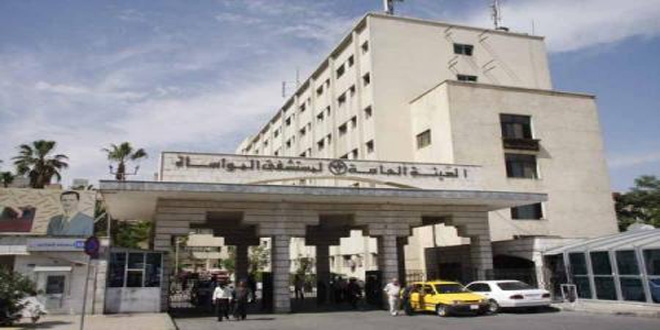Despite the immense challenges facing Syria’s health sector, Al-Mouwasat University Hospital in Damascus continues to provide free diagnostic and therapeutic services for patients in addition to educational and training services for students.
“Al-Mouwasat Hospital [has been] exposed to considerable pressure from the beginning of the crisis where it has received complicated cases resulting from injuries caused by the mortar shells attacks, terrorist explosions and [other] incidents … thankfully we dealt with them and provided the necessary treatment to the fullest,” hospital Director Dr. Hashem Saqer told SANA.
Saqer added that although the hospital is witnessing a shortage of medical teams, it continues to offer quality services thanks to new graduates who join its ranks.
Founded in 1956, the hospital’s practitioners include up to 70 faculty physicians, 68 contract doctors, 450 postgraduate students and 825 nurses, Saqer said, adding that a plan is underway to rehabilitate the nearby central ambulance hospital to ease the pressure from huge patient numbers.
The latest data issued by the hospital shows that during the first six months of 2015, the number of outpatient attendants amounted to 71,216 cases, while the hospital admitted 42,306 patients.
During the same period, the medical practitioners made 446 laparoscopic surgeries, 668 general surgeries, 1,388 otorhinolaryngic surgeries, 336 urinary and genital surgeries, 315 orthopedic surgeries, 820 plastic surgeries, 250 neurological surgeries, 174 thoracic surgeries, 1,297 ophthalmic surgeries and 176 blood vessels surgeries.
In addition, the number of those treated by laser surgery reached 613 patients, in addition to a total of 7,321 kidney dialysis sessions, 39,196 electrocardiograph cases, 21,398 separate ultrasound cases, 399 chemotherapy sessions, 639,810 lab analyses and 101,088 radiology cases.
This article was edited by The Syrian Observer. Responsibility for the information and views set out in this article lies entirely with the author.


